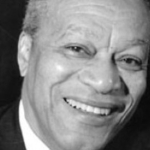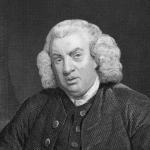Inside a ruined temple the broken statue of a god spoke a mysterious language.
–Giorgio de Chirico
My father kept a speckled conch
By two bronze bookends of ships in sail,
And as I listened its cold teeth seethed
With voices of that ambiguous sea
Old Böcklin missed, who held a shell
To hear the sea he could not hear.
What the seashell spoke to his inner ear
He knew, but no peasants know.
My father died, and when he died
He willed his books and shell away;
The books burned up, sea took the shell,
But I, I keep the voices he
Set in my ear, and in my eye
The sight of those blue, unseen waves
For which the ghost of Böcklin grieves.
The peasants feast and multiply
And never need see what I see.
In the Temple of Broken Stones, above
A worn curtain, rears the white head
Of a god or madman. Nobody knows
Which, or dares ask. From him I have
Tomorrow's gossip and doldrums. So much
Is vision good for: like a persistent stitch
In the side, it nags, is tedious.
Straddling a stool in the third-floor window-
Booth of the Alexandra House
Over Petty Cury, I regard
With some fatigue the smoky rooms
Of the restaurant opposite; see impose
Itself on the cook at the steaming stove
A picture of what's going to happen.I've
To wait it out. It will come. It comes:
Three barely-known men are coming up
A stair: this veils both stove and cook.
One is pale, with orange hair;
Behind glasses the second's eyes are blurred;
The third walks leaning on a stick
And smiling. These trivial images
Invade the cloistral eye like pages
From a gross comic strip, and toward
The happening of this happening
The earth turns now. In half an hour
I shall go down the shabby stair and meet,
Coming up, those three. Worth
Less than present, past—this future.
Worthless such vision to eyes gone dull
That once descried Troy's towers fall,
Saw evil break out of the north.


















Comment form: